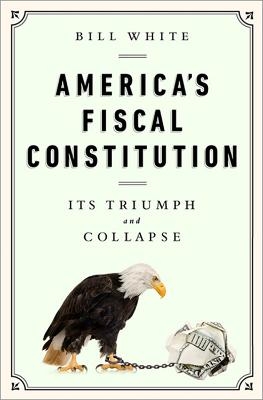
America's Fiscal Constitution
Its Triumph and Collapse
Seiten
2014
PublicAffairs,U.S. (Verlag)
978-1-61039-343-0 (ISBN)
PublicAffairs,U.S. (Verlag)
978-1-61039-343-0 (ISBN)
Through eye-opening analysis of the role of debt in American history, a renowned finance expert and three-term Democratic mayor of Houston illuminates how debt now threatens our future, and suggests sensible bipartisan approaches to resolving the crisis.
What would Washington, Jefferson, Madison, Lincoln, the Roosevelts, Truman, and Eisenhower have done about today's federal debt crisis?America's Fiscal Constitution tells the remarkable story of fiscal heroes who imposed clear limits on the use of federal debt, limits that for two centuries were part of an unwritten constitution. Those national leaders borrowed only for extraordinary purposes and relied on well-defined budget practices to balance federal spending and revenues. That traditional fiscal constitution collapsed in 2001. Afterward,for the first time in history,federal elected officials cut taxes during war, funded permanent new programs entirely with debt, grew dependent on foreign creditors, and claimed that the economy could not thrive without routine federal borrowing.For most of the nation's history, conservatives fought to restrain the growth of government by insisting that new programs be paid for with taxation, while progressives sought to preserve opportunities for people on the way up by balancing budgets. Virtually all mainstream politicians recognized that excessive debt could jeopardize private investment and national independence.With original scholarship and the benefit of experience in finance and public service, Bill White dispels common budget myths and distills practical lessons from the nation's five previous spikes in debt. America's Fiscal Constitution offers an objective and hopeful guide for people trying to make sense of the nation's current, most severe, debt crisis and its impact on their lives and our future.
What would Washington, Jefferson, Madison, Lincoln, the Roosevelts, Truman, and Eisenhower have done about today's federal debt crisis?America's Fiscal Constitution tells the remarkable story of fiscal heroes who imposed clear limits on the use of federal debt, limits that for two centuries were part of an unwritten constitution. Those national leaders borrowed only for extraordinary purposes and relied on well-defined budget practices to balance federal spending and revenues. That traditional fiscal constitution collapsed in 2001. Afterward,for the first time in history,federal elected officials cut taxes during war, funded permanent new programs entirely with debt, grew dependent on foreign creditors, and claimed that the economy could not thrive without routine federal borrowing.For most of the nation's history, conservatives fought to restrain the growth of government by insisting that new programs be paid for with taxation, while progressives sought to preserve opportunities for people on the way up by balancing budgets. Virtually all mainstream politicians recognized that excessive debt could jeopardize private investment and national independence.With original scholarship and the benefit of experience in finance and public service, Bill White dispels common budget myths and distills practical lessons from the nation's five previous spikes in debt. America's Fiscal Constitution offers an objective and hopeful guide for people trying to make sense of the nation's current, most severe, debt crisis and its impact on their lives and our future.
Bill White is senior advisor at Lazard, a firm advising corporate leaders and governments worldwide. He served as Houston's mayor and was twice re-elected with an average vote of 88 percent. He also served as the deputy secretary of energy of the United States. He received the prestigious John F. Kennedy Profiles in Courage Award for his leadership in response to Hurricane Katrina and the Governing Official of the Year Award from Governing magazine. He has worked as the CEO of a successful business and as a member of numerous corporate boards. In 2010 he received more votes for governor of Texas than any Democratic candidate in the state's history.
| Zusatzinfo | charts and appendices |
|---|---|
| Sprache | englisch |
| Maße | 162 x 241 mm |
| Themenwelt | Geisteswissenschaften ► Geschichte ► Regional- / Ländergeschichte |
| Sozialwissenschaften ► Politik / Verwaltung ► Politische Theorie | |
| Sozialwissenschaften ► Politik / Verwaltung ► Staat / Verwaltung | |
| Wirtschaft ► Betriebswirtschaft / Management ► Rechnungswesen / Bilanzen | |
| Wirtschaft ► Volkswirtschaftslehre ► Finanzwissenschaft | |
| Wirtschaft ► Volkswirtschaftslehre ► Wirtschaftspolitik | |
| ISBN-10 | 1-61039-343-0 / 1610393430 |
| ISBN-13 | 978-1-61039-343-0 / 9781610393430 |
| Zustand | Neuware |
| Haben Sie eine Frage zum Produkt? |
Mehr entdecken
aus dem Bereich
aus dem Bereich
Erinnerungen
Buch | Softcover (2024)
Pantheon (Verlag)
16,00 €


